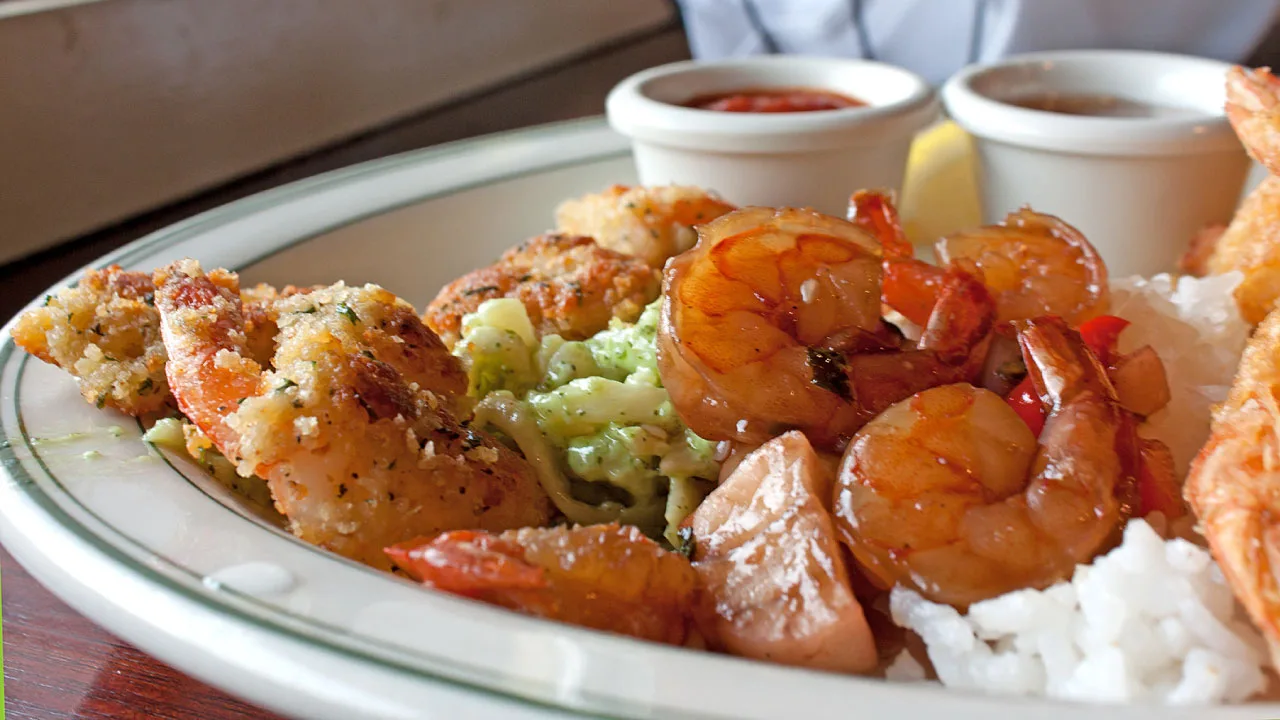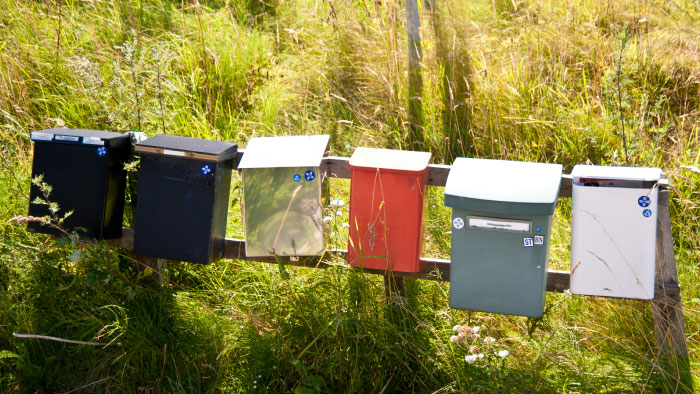
To kinda quote Eddie Money, I just got two tickets to paradise in the mail.
Well….kinda.
They were actually “admission tickets,” and invited me to a dinner seminar entitled “Learn How To Protect Your Savings” at a decent mid-tier restaurant in Texarkana, Texas.
I get invitations to “free dinner seminars” all the time. Do you?
Free Dinner Seminars
While you might learn something at these seminars, they aren’t what you think. These are actually carefully crafted marketing machines, designed to teach you much less than you’d expect. They’re carefully planned from who’s targeted during the invitation process, to what happens during the workshop and even the events directly after the evening finishes.
How do I know?
I was a hired gun who spoke at these free dinner seminars.
Advisors marketing for new clients called on me because I knew how to convert audiences. I wasn’t good at it; at the risk of sounding like a pompous egomanic…I was great. Over 50 percent of the people who came to presentations I gave wrote that they wanted a one-on-one consultation afterward. I was much better than most at making people believe they wanted our help. At the height of my career, I was giving over 80 presentations a year. How did I have time to run my practice? Easy. These speeches were the heart of my marketing. Rather than ask for money, I wanted to be paid with leads from the seminar. I received 10% of the “yes” names who attended….usually three or four quality potential clients a night.
If It’s a Sales Pitch, Why Do People Attend?
People who attended presentations I gave weren’t stupid. They expected a sales pitch. However, most of the time, people had specific questions they were hoping to have answered, and they hoped they’d at least gain a little knowledge.
How Free Dinner Seminars Work: Top to Bottom

Using sophisticated tracking techniques offered by third party companies, advisors buy a mailing list and attractive mailer/ticket packages that only focus on a target market. Want to attract upscale people? Your mailing will only hit neighborhoods with the biggest houses in town. Hoping to attract families with kids? People over age 60? As an advisor, I can check those boxes also. It’s pretty amazing. Some companies promise that the only people who will receive your mailing have $500k+ in assets. That might seem a little frightening…but our mailers were nearly always accurate. If you were invited to our presentation it’s because we knew enough about your wallet that we could put together a presentation to impress you.
As for the setting, the advisor makes a deal with a restaurant for a private seating area. They negotiate a discount on a night that the restaurant usually has less than stellar traffic. If I’m an advisor, I’ll ask the restaurant owner if Wednesdays stink. If so, how would they like it if I were to bring about 30 people to their place? Restaurants loved it, so they nearly always agreed. That’s also why the vast majority of these presentations are on a Tuesday or Wednesday night. The advisor got a steep discount, and the restaurant was filling empty seats.
At the Workshop

We orchestrated the dinner presentation to work magic. Much like a retail store during the holidays, we had a clear idea of what stories and analogies sold and how to approach potential customers.
First, we played soothing, comfortable music as people entered. If the hosts (the advisors) were good at their job, they’d get rid of any sign-in table and instead walk guests individually to seats as they arrived. We had this down to a science. Advisors would politely ask for a guest’s name and introduce themselves, and then they’d discuss hobbies and occupations. Then when we sat people at a table, we’d introduce using these hobbies and occupations as if we were all old friends. Our goal? We wanted you to feel as calm and relaxed as possible before we started. We also wanted you to feel like you weren’t in a room full of strangers. Because we were careful about this (music to soften your mood, introductions to the (former) strangers around you, and a casual atmosphere) people at tables around the room would often talk so much among themselves that we’d have to quiet the room so we could begin our presentation.
They liked us already, and we hadn’t started!
Some presentations work differently, but in ours I spoke while you ate. The goal was to shorten the evening and to make sure that you couldn’t catch every important point I made. I choreographed the speech so carefully that I had a point in the presentation when I’d instructed the staff to bring salads and another when I wanted the main course to arrive. I shared these points with the kitchen and timed it all out. Desserts were presented AFTER I closed the presentation. Why? If I gave you a good piece of pie or scoop of ice cream, there was a better chance you’d hang out afterward. That would allow me and the advisors who hired me to stay and chat with you.
…and if I could chat with you, I could probably sell you.
Here’s the problem we fought with dessert: some people would leave while one guest babbled on about their situation forever. It was my job to disengage politely from long conversations because statistics showed that if I could talk to as many people as possible individually, more people were more likely to take my call for a consultation meeting AND were likely to show up.
What Does The Seminar Actually Cover?

My goal wasn’t to teach you anything. The whole reason I was hired was to dazzle you with enough information that you felt like you needed help. I had to be clever, though. I couldn’t just keep selling you on how difficult it was to go through the planning process. That would scare you or make you see through my pitch. Instead, I’d share some quality points that you could do without me, and then note that having a good, honest advisor in your corner would make sure you covered every potential issue AND helped avoid getting stuck. So, I’d pretend to teach everything you needed to know, while leaving out some essential information about how to get it done. Then I’d tell you a horror story focused squarely on a well-meaning person who messed it up so bad they lost lots of money and time….then I’d move on to the next topic.
Later, rinse, repeat.
A few times during the presentation I’d mess with your feelings. Sometimes I’d present concepts nobody in the room was familiar with except the most hard-core, analytical people. I’d act like these were points “everyone knows.” My goal was to purposefully make you feel as if you were the only person in the room who WASN’T aware of a difficult concept. I’d also trick you with some questions to make you nod because you thought you knew where I was headed…and then I’d double back to make you shake your head. This misdirection was designed in a way to make sure you didn’t question me or my intentions. You thought of me as helpful and giving. The only person you doubted was yourself. I was just the nice man showing you how things were done.
Do I think this was manipulative?
Of course I do! That doesn’t make it wrong. I was a very good advisor, but I needed clients. I had to help you find a reason to come into my office. I’m proud to say that although there were people I couldn’t help a ton, I’ve never met anyone whom I didn’t help at least enough to cover the time and expense of coming to see me. I was worth it for people to meet with me….but I had to sell YOU on the fact that I was worth it. Manipulating your feelings and making you doubt yourself a little is an effective way to get you to come see me.
What To Expect After The Presentation

While you were leaving the workshop, we worked hard to get you to sign up for an appointment at our office in the following week. If you didn’t schedule on the spot, my assistant called you to schedule a time (provided you’d marked that you wanted us to call on a comment card. If you didn’t want us to call, we NEVER called you). Early in my career, I made those calls, because I still had to convince you to come in. I hadn’t perfected the game. Later, I was a good enough speaker that you came in fairly certain you were going to hire me. The main question on your mind? How much did I cost.
I know that sounds cocky, but I was good at my job. At our first meeting I ALWAYS tried to help you as much as possible and tried to make sure to give you a ton of free information. I wanted you to feel like you made the right decision to come see me. Some advisors don’t work that way, and I don’t understand why. By the end of that first meeting, my goal was to develop the one thing you wanted more than anything from an advisor: a sense that “I can trust this guy.”
How To Know You’re At a Bad Presentation
If the workshop talks about an individual product (annuities, funds, or a “cure all” fix), I’d run. If the seminar presents concepts and ideas that you can buy anywhere….not just from the advisor and even if you don’t “act today,” it’s probably a better presentation. You’ll know. If you want to leave the meeting, do it. If it feels comfortable, that’s a good first sign. Just remember that the biggest frauds are the best ones at acting like good guys.
For that reason, ALWAYS use the FINRA regulatory agency’s Brokercheck site to make sure your potential new advisor hasn’t already had some run-ins with regulators. Ask for all advice in writing. If they guarantee rates of return (something they really shouldn’t do), ask for that in writing. Some products DO have a guaranteed return (fixed annuities and CDs for example), but most that an advisor will use DO NOT have guarantees. Make sure your advisor talks about risk.
Final Thoughts
Going to a dinner seminar can be a good way to meet an advisor. However, you’ll have to still do your homework and avoid the urge to be seduced by a good meal and friendly people. Remember the phrase Gordon Gekko used in the original Wall Street movie. “This is business. If you want a friend, buy a dog.” An advisor’s nice personality doesn’t make them a good advisor. Use that introduction as a starting point and still look critically at what’s between the lines in the slick presentation, and you’ll be on your way toward making a good choice.


This was a fascinating read Joe. I always wondered how they converted people into clients when most people know it’s a sales pitch going in. I recently got an invite to such a dinner recently but wasn’t able to go. I will try to go next time for sure so I can try to spot all these things. And hopefully get a nice dinner to boot!
I think as long as you know what’s going on, you’re good. Your goal should be to find your perfect advisor, not to walk out with anything substantial.
By far the most interesting read I’ve ever had on financial planners.
Thanks, man! I got those tickets in the mail and thought….”I’ll bet most people don’t know what this looks like from the other side….”
Thanks, man!
Ha! You know how I feel about these. I used to joke about the free chicken dinner at the airport Marriott and how that’s the worst way to find a financial advisor. I understand that it’s a way to try to meet new clients and it seems “better” than cold calling, but I’m still not a fan of the practice.
From the standpoint of a new advisor, it’s hard to beat. There are few situations where you get a chance to meet new people en mass without being annoying. I actually feel lucky I started at a time when cold calling was still acceptable (well….to a degree). Without that really annoying tool, I might never have become an established advisor.
We have a friend who wants us to attend these with him because he is interested in the free food. We have an adviser and a financial plan, so we always refused. Plus, I read once that these seminars make you wait at least an hour for the foot, so you will be forced to listen to them while you wait. No thanks.
I don’t blame you. You’re wasting your time and the advisor’s resources if you’re just trying to eat a free meal on their dime. I didn’t care if people didn’t sign up to try and hire me….but I always hoped they wanted to get SOMETHING out of my talk.
On the “waiting for your food” portion of your comment….the goal of these seminars is to get new clients, and if you’re an advisor who’s forcing your potential clients to wait for an hour for food while you talk, you’re a moron. When i was the speaker either salads were sitting out already and then you were served during my talk OR salads and food were both served during the talk. I didn’t want to take your whole night. It was far better to get the relationship started on the right foot.
Wasting the advisor’s resources is a really good point. I’m going to use that in the future – maybe in a personal ethics post. And yes wasting time is an issue too for both parties. I think these dinners got a bad rap when the press got wind of advisors selling expensive annuities to the participants. Now there is kind of a mindset of let’s stick it to them.
WorkingGirl, it must be really tough to have to wait on a free meal.
No one is forcing you to do anything at a seminar except maybe offer your limited attention.
I relied heavily on seminars starting off… How else do you expect an advisor to find clients? I know I have value that I can add to the public, so I put up my own resources to fill a room with potential clients. I’ve had success with seminars, and I understood that some people came for the free food. Some people came to learn. And some people came to actually give me a chance. The “plate lickers” (as I called them) were a vital piece to the puzzle, as I always wanted to have a full room.
Do yourself a favor and listen to learn … but Buy Nothing, Sign Nothing and Provide NO personal contact information, If you have to fill out a card ‘Secret Agent’ the whole thing…fake name, phone, everything….Remember YOU ARE BEING T-A-R-G-E-T-E-D.
the great majority of free dinner seminars are veiled attempts to sell annuities and other inappropriate investments. Many of theses are sold on the same night as the free dinner which implies that these advisers don’t have a clue that their clients beat interests are served by these investments. Stay away from free dinners.They may turn out to be the most expensive dinner you ever ate.